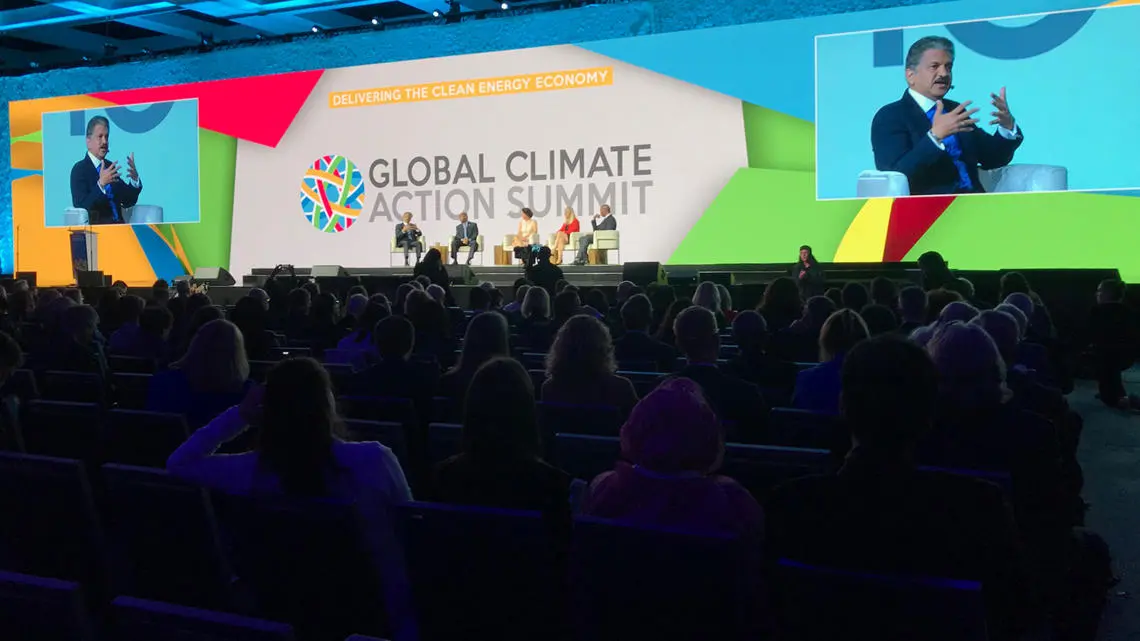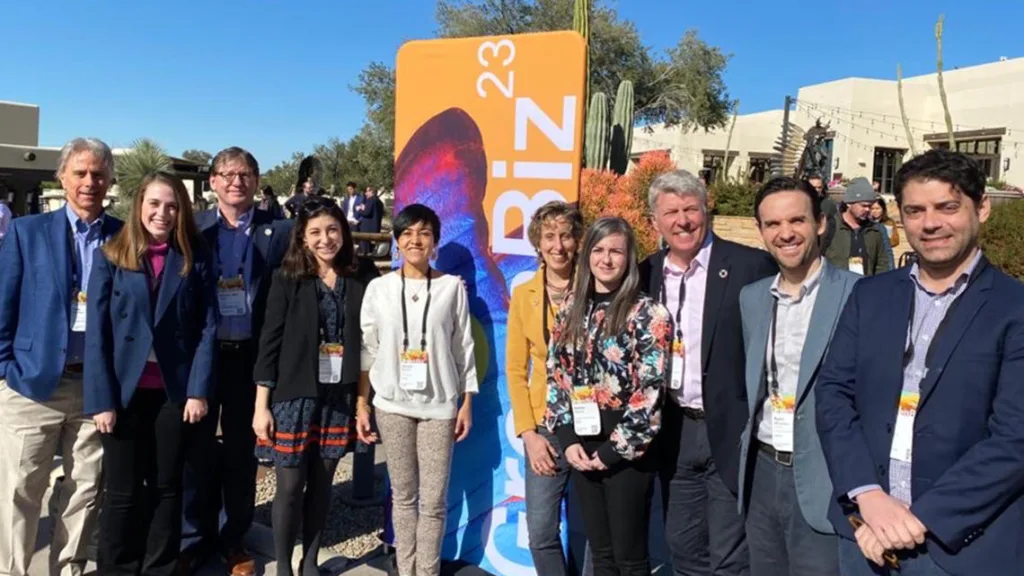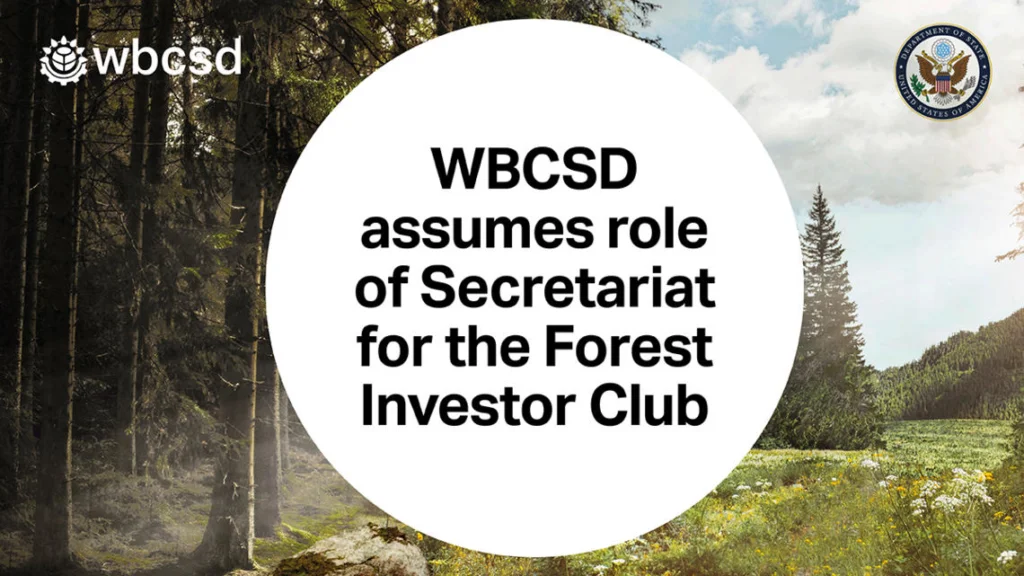Authors
Communications
Last week in San Francisco, climate leaders across business, policy and civil society gathered to “take ambition to the next level” at the first-ever Global Climate Action Summit. The hallmark summit was designed to showcase the work of local governments and non-state actors in pursuing the fight against climate change.
Over 4,000 individuals attended the official summit, while tens of thousands more journeyed to San Francisco to participate in the 300 side events running across the city and beyond.
The excitement in the air was palpable.
At the start of the week, California State Governor Jerry Brown signed into law new requirements mandating California’s carbon neutrality and 100% renewable energy usage by 2045. As the fifth largest economy, California’s clear commitment to climate action demonstrated exactly the kind of bold action that’s needed to achieve the Paris Agreement.
The principal message resounding across the Summit was clear: It’s up to local governments and other nonstate actors across the globe to implement solutions that are needed to tackle the climate challenge.
Participants celebrated the numerous corporate commitments from around the world in efforts to reduce carbon emissions and deliver stronger climate transparency.
WBCSD members at the event championed climate commitments from resilience, to climate smart agriculture, to Science Based Targets, low-emissions transport, climate disclosure and more. (For more, see this snapshot of how business is stepping up to the climate challenge)
Major announcements included:
- The Port of Rotterdam launched a global coalition comprised of key ports, including those of Hamburg, Los Angeles, Long Beach and Antwerp to decarbonize the maritime sector
- Anand Mahindra, Chairman of Mahindra Group announced plans to make all its group companies carbon neutral by 2040
- EDF committed to lower its carbon emissions by 20 million tons by 2030 to reach carbon neutrality by 2050
- Over 20 companies joined Transforming Heavy Transport to reduce emissions across the heavy transport sector
- below50 member United Airlines set a goal to cut its greenhouse gas emissions by 50% by 2050
- 392 investors with US $32 trillion in assets are now using The Investor Agenda to highlight climate action
- Together, leading companies announced 3.5 million new charging points for EVs by 2025
- Over 1,000 organizations made climate disclosures this year under CDP. Many were first-timers
- Climate Smart Agriculture Targets agreed upon by leading companies, including Unilever, Olam, Syngenta, Rabobank with the support of the We Mean Business Coalition and WBCSD
“It’s great to set ambitious targets, achieve them, and then go further,” said Jessica Mann, Head of Environmental, Social and Governance at Wells Fargo Asset Management.
While exciting and noteworthy, commitments represent the start of the story – not the finish. Because of this, speakers at each event were clear about the importance of implementing solutions to meet ambitious targets.
“We need to go beyond zero emissions targets to get to zero emissions,” one participant said. In her words, setting targets that are more ambitious, means that if we fall short, we will get closer to where we need to go.
WBCSD members at the Summit were ready to demonstrate the progress they’ve made in reaching their climate targets.
The Low Emissions Solutions Conference
For example, the Low-Emissions Solutions Conference (LESC) brought together over 200 business representatives, academics and policy makers at the University of San Francisco to discuss implementing solutions to speed the transition to the low-carbon economy.
The event focused on the relationship between land management and energy in addressing climate change – with a clear emphasis on untapped solutions for reducing emissions and drawing carbon out of the atmosphere. Presenters dove head-first into the data, helping highlight the granular details associated with climate solutions for businesses and academics alike.
Key themes included: 1) The limited time we have to address the climate challenge; 2) the fact that the land-energy nexus is integral for slowing climate change and delivering climate solutions; and 3) policies are needed to accelerate the implementation of energy and land use solutions.
Bill McKibbon, world-renowned environmentalist, opened the LESC by playing clips of a massive Greenland ice sheet melting into the ocean over mere minutes. “Climate change is happening now,” he said. “Solutions that take too long aren’t solutions, we need a suite of solutions that are going to make change happen – and quickly.”
Policymakers from Brazil, California, Hawaii and Mexico illustrated the work that’s already being done to strengthen climate commitments – while academics stressed the need to do much more.
In response, companies present at the LESC dove into the practical ways to take ambition further through solutions like climate-smart agriculture or transforming transport systems, both of which saw new projects launched last week.
Speaking specifically about WBCSD’s work in transforming transport, Anirban Ghosh, Chief Sustainability Officer at Mahindra Group said, transforming transport systems is “no longer a pipe dream”. “What we think of [as futuristic] is already happening now.”
Implement solutions now
One of the key ways to move faster in addressing the climate challenge, is to implement solutions that will take effect immediately: natural climate solutions.
Recent studies show that natural climate solutions could offer up to 37% of the emissions reductions needed to limit global warming to 2°C. As such, WBCSD’s Natural Climate Solutions project aims to help business unlock this untapped potential for addressing the climate challenge.
During the Summit, The Nature Conservancy, WBCSD and others teamed up under the Nature4Climate coalition to help ensure that nature doesn’t become “the forgotten solution.”
In addition to mitigation efforts and low-carbon technology, we need an interim solution,” said Alema Bibi, Manager of WBCSD’s Natural Climate Solutions project. “Natural climate solutions are something we can implement now – they’re about better land management, healthier trees, forests and soils.”
“If we don’t start working with nature to draw down more carbon, we’re never going to address the climate challenge,” said Justin Adams, Managing Director of The Nature Conservancy. “We can get on with this now.”
During the official Nature4Climate launch event, Paul Polman, CEO of Unilever, said “If you don’t take care of climate change, you’re not going to have an economy.” Nature is key for reducing emissions, for food security and for sustainable development.
Nature continued as a key theme over the course of the week, with A-listers like Harrison Ford, Alec Baldwin and Jane Goodall encouraging conference-goers to remember and appreciate the power of nature as a climate solution.
The Official Program
During the opening of the Summit’s official program, major climate activists, from Cristiana Figueres, to Harrison Ford, urged the audience towards exponential transformation – employing every tool and solution to fight climate change.
“We are the first generation to feel impacts of climate change and the last to be able to do something about it,” said former United States President, Barack Obama in a specially recorded video. “Get inspired.”
The Summit prioritized five key tracks for taking climate ambition to the next level, including:
- Healthy Energy Systems
- Inclusive Economic Growth
- Sustainable Communities
- Land and Ocean Stewardship
- Transformative climate investments
Despite protests at the fringes of the event calling for more ambitious and urgent climate action, the attitude towards key non-state actors – especially business people, civil society members and indigenous communities – was overwhelmingly positive.
“We cannot and will not wait for government to take action. This week is about celebrating what’s been done and about going further”, said Alec Baldwin.
We’re still at the start of the climate challenge, we have an immense amount of work ahead, but now is the time to keep up the good work, knuckle down, and try even harder.
As Harrison Ford said about global warming during the opening plenary, “Let’s turn off our phones, let’s roll up our sleeves and let’s kick this monster’s ass.”
WBCSD news articles and insights may be republished in accordance with the Creative Commons Attribution-NonCommercial-NoDerivatives 4.0 International Public License, and in accordance with our Privacy Policy. All Content must be featured with due credits.
Outline




